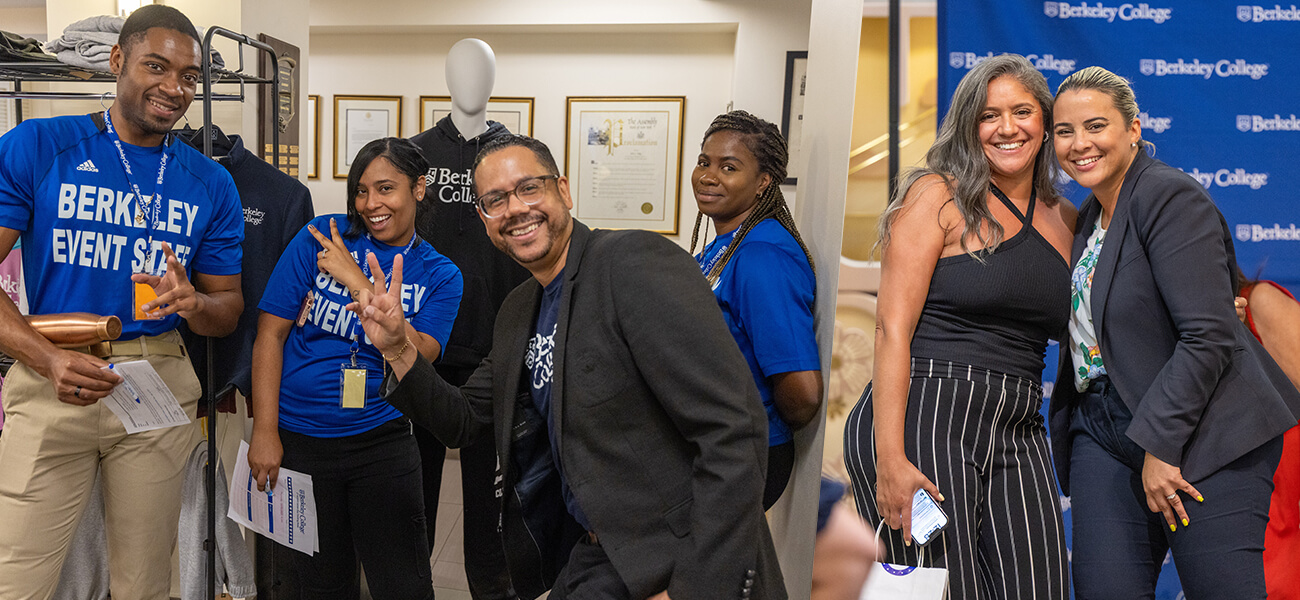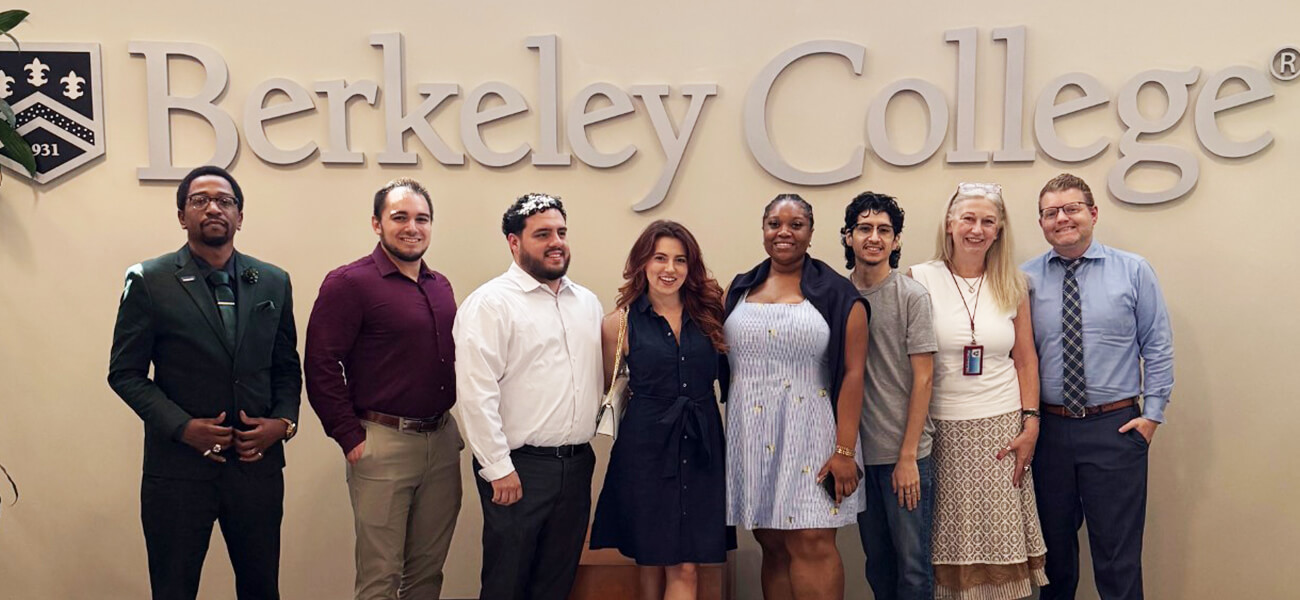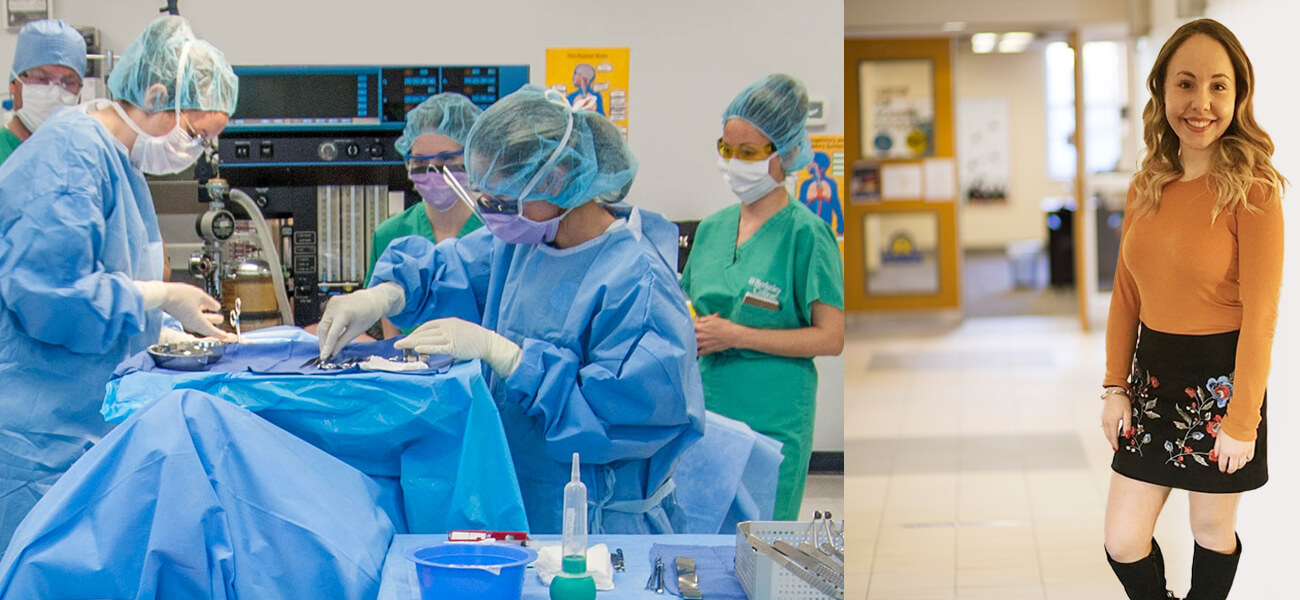The future of education and work
The future of education and work
The COVID-19 pandemic has changed the world in many ways, including the way we learn and the way we work. Schools and offices around the world had to quickly adapt to a virtual environment. Some organizations were prepared for this transition. Others were not. A year and a half later, we take a look at the “new norms.”
Flexibility and adaptability are critical
Despite the challenges, the transition has led to opportunities. Students have begun to develop additional skills that will be essential in the professional world of the future. Time management and written communication are just two of the areas that will benefit students as they enter the workforce.
“Working on a weekly schedule of projects in an online course is excellent preparation for meeting deadlines in a professional setting,” said Joe Scuralli, MBA, DPS, Dean for Online Education and Dean of the Larry L. Luing School of Business® at Berkeley College. “Evaluating your workload and managing your time accordingly, along with learning to find answers to your questions, are important skills for every industry that will be evident and appealing to employers.”
Unprecedented opportunities
Obviously, numerous industries have been severely affected by the pandemic, but many fields—including graphic design—are thriving. “There are full-time and freelance opportunities,” said Carlos Cruz, Chair of the Graphic Design programs at Berkeley College. “Businesses across all areas are in need of new kinds of promotion and support, creating demand for skilled graphic design professionals.”
Web design, package design, app and game design, and multi-media design are just a few of the areas where graphic designers are finding opportunities, according to Cruz. “Even while some firms temporarily closed their physical offices, many areas of graphic design are very well-suited for remote work,” he continued. “Current technology—like the hardware and software we use here at Berkeley College, make it possible for designers to work for clients around the world.
In search of a work/life balance
"We have changed. Work has changed. The way we think about time and space has changed," according to Tsedal Neeley, a professor at Harvard Business School and author of the book Remote Work Revolution: Succeeding From Anywhere. In a recent NPR article, she said that workers now crave the flexibility given to them in the pandemic—which had previously been unattainable.
Expanding your career search
 Many industries have opened up to remote or hybrid working situations. This allows recent college graduates to pursue career opportunities outside their location without the inconvenience, expense, and disruption of relocation. Similarly, companies can now recruit talented employees from anywhere. As an example, graduates can pursue careers at many Silicon Valley technology companies without worrying about the extreme costs of living in the area. With reduced real estate costs, some companies even offer stipends for setting up a home office.
Many industries have opened up to remote or hybrid working situations. This allows recent college graduates to pursue career opportunities outside their location without the inconvenience, expense, and disruption of relocation. Similarly, companies can now recruit talented employees from anywhere. As an example, graduates can pursue careers at many Silicon Valley technology companies without worrying about the extreme costs of living in the area. With reduced real estate costs, some companies even offer stipends for setting up a home office.
The possibility of negotiating power
The possibility of remote or hybrid working can also be a negotiating item in beginning a new job. To attract and retain quality employees, many firms are open to custom situations involving on-site and remote work, as well as flexible hours to accommodate new team members.
Professor Neeley of Harvard Business School agreed that there might never be a better time to ask for what you need, noting increased empathy levels among employers.
"I was delighted, for the first time in my career, to see the empathy that people had and the willingness to make accommodations," she said. She pointed out that workers have proven they could be productive at home and have earned the right to ask for flexibility.
Berkeley College was ready
The robust infrastructure that helped Berkeley become an early leader in online education helped the transition for students, faculty, and staff. Even those who had never taken—or taught—an online course before found everything in place and assistance easily available. In-person classroom discussions became Zoom meetings. Questions with professors and advisors were handled through emails and phone calls.
Real-world career preparation
A Berkeley College education has always focused on real-world career preparation. In addition to learning from professors with extensive professional experience in the subjects they teach, internships have long been an important part of many of the College’s degree programs.
While the COVID-19 outbreak changed the educational landscape across the country, Berkeley College was able to continue providing its unique brand of career-focused education with minimal disruption. Through opportunities for virtual—or remote—internships, students have been able to take what they’ve learned in the classroom and apply it in professional situations, getting a valuable introduction to the marketplace. Internships also provide excellent networking opportunities, enabling students to make professional connections that sometimes result in post-graduation employment. Click the link to learn how Berkeley student Ana De La Rosa couldn’t have had a better internship experience.
Shorter-term Continuing Education programs address varied needs
 For those seeking an introduction to a career field, as well as for working professionals looking to learn new skills or add credentials that can help them advance in their careers, Berkeley offers a range of Continuing Education certificate programs and standalone courses. These options focus on areas such as business, healthcare, design, legal and justice studies, finance, and more. “We are living in the age of major transformations in today’s workforce, so we need skills to be prepared for new emerging opportunities,” said Maria Rivera, Director of Continuing Education at Berkeley College. “The 'Art of Reinvention' is now a necessity.”
For those seeking an introduction to a career field, as well as for working professionals looking to learn new skills or add credentials that can help them advance in their careers, Berkeley offers a range of Continuing Education certificate programs and standalone courses. These options focus on areas such as business, healthcare, design, legal and justice studies, finance, and more. “We are living in the age of major transformations in today’s workforce, so we need skills to be prepared for new emerging opportunities,” said Maria Rivera, Director of Continuing Education at Berkeley College. “The 'Art of Reinvention' is now a necessity.”
“These Continuing Education programs are a great way to immerse yourself in a career field or to add professional certifications,” she continued. “The courses are taught by the same excellent professors as our degree programs and the credits earned may be transferrable toward a degree.”
Preparing for in-demand fields
“As healthcare continues to grow rapidly and each specialty requires specific training and credentials, Berkeley College provides an opportunity to gain new skills in preparation for advancement or career transition, said Meta Wongkar-Gut, MD, DBA, RMA, Chair of Allied Health Medical Programs. “Continuing Education programs offer excellent opportunities to prepare someone with little or no experience to enter the healthcare workforce without a significant investment of time and money. Obtaining this education will allow them to continue their training and apply the CE credits into an Associate’s or Bachelor’s degree program, increasing their career potential. Additionally, Berkeley College offers many options for current healthcare professionals seeking to advance their careers by expanding their skills and becoming an incredible asset to their employer.”
Remembering to stay connected
While some people have quickly embraced learning or working from home, others have been slower to adapt. Messaging or phone calls can help make up for in-class or in-office personal conversations. It’s important to stay in touch on matters that go beyond the responsibilities of school and work.
Creating an efficient and productive space
Whether you’re studying or working at home, it’s important to create an environment that helps, rather than hinders your productivity, if possible. Be sure that your technology works properly to avoid downtime that can put you behind schedule. Arrange an area that’s as private as possible if you’re easily distracted. Consider an adjustable or standing desk, as well as an ergonomic keyboard. And don’t forget to take breaks, step away from your desk, and remember to exercise.
Ready for what’s next
“The educational journey at Berkeley College has—and always will—reflect the professional world,” said Dr. Diane Recinos, Interim President. “Just as we’ve evolved from the secretarial school model of 1931 to remaining at the forefront of technology through the years, we will continue to adapt to the ever-changing needs of our students and the demands of the current marketplace. And as we look to the future, one thing is certain—the needs of our students will always come first at Berkeley.”
The views and/or opinions in this article are those of the individuals interviewed. The academic achievements and/or employment outcomes described in this article are specific to each individual, and are not a guarantee of similar results for past or current students. For up-to-date and detailed information, please visit BerkeleyCollege.edu and view our catalogs at BerkeleyCollege.edu/publications.





